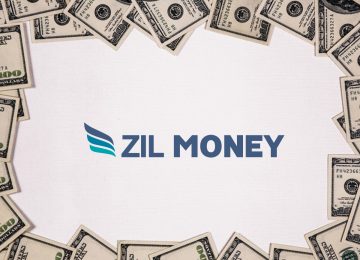Link building remains one of the most influential tactics in search engine optimization (SEO). When done correctly, it helps boost a website’s authority, improves rankings, and drives valuable organic traffic. But when done poorly, link building can backfire—resulting in penalties, lost rankings, and wasted effort.
Unfortunately, many businesses fall into the trap of chasing quick wins or outdated strategies without understanding the risks. If you’re investing time and resources into link building, avoiding common mistakes is critical to long-term success.
Here’s a breakdown of the most common link building missteps and how to avoid them.
1. Prioritizing Quantity Over Quality
The Mistake:
Many businesses believe that more links automatically equal better rankings. As a result, they aim to generate as many links as possible without considering the quality of the referring sites.
Why It’s a Problem:
Google’s algorithms focus on quality, relevance, and authority. A handful of links from trusted, high-authority websites will do far more for your SEO than dozens of low-value links from weak or spammy domains.
How to Avoid It:
Focus on earning links from relevant, reputable sources. Build relationships with trusted industry sites, bloggers, and publications. Quality should always come before quantity.
2. Relying on Spammy Directories and Link Farms
The Mistake:
Submitting your website to hundreds of generic directories or participating in link exchange networks might seem like an easy way to build backlinks.
Why It’s a Problem:
These tactics are outdated and often flagged by search engines as manipulative. Links from low-quality, irrelevant directories offer little to no SEO value—and can even hurt your rankings.
How to Avoid It:
Only submit your site to trusted, niche-specific directories or associations relevant to your industry. If a directory exists purely to sell links, it’s best to steer clear.
3. Over-Optimizing Anchor Text
The Mistake:
Using keyword-rich anchor text (the clickable part of a hyperlink) excessively across your backlinks in an attempt to boost specific rankings.
Why It’s a Problem:
Overuse of exact-match anchor text is a red flag to search engines and can result in penalties. Natural, varied anchor text is a hallmark of organic link building.
How to Avoid It:
Use a mix of anchor text types: branded, generic (“click here”), partial match, and natural phrasing. This variety signals organic linking behavior to search engines.
4. Ignoring Relevance
The Mistake:
Getting backlinks from websites that have no topical relation to your own. For instance, a tech company getting links from a cooking blog just for the sake of a backlink.
Why It’s a Problem:
Google prioritizes relevance in its ranking signals. Links from unrelated websites are less valuable and may not help your rankings at all.
How to Avoid It:
Seek backlinks from websites that share similar or complementary subject matter. Relevance strengthens the perceived authority and legitimacy of your links.
5. Neglecting On-Site Content Quality
The Mistake:
Trying to build backlinks to low-quality content or thin pages that offer little value to users.
Why It’s a Problem:
Even if you earn a backlink, it won’t do much if the destination page isn’t helpful or well-optimized. Plus, high-quality sites are unlikely to link to poor content in the first place.
How to Avoid It:
Create valuable, link-worthy content. That might include in-depth guides, original research, interactive tools, or well-crafted blog posts. Great content naturally attracts links and makes outreach efforts more successful.
6. Buying Links
The Mistake:
Paying websites to include a backlink to your site—sometimes disguised as “sponsored content” or “editorial placements.”
Why It’s a Problem:
Paid links violate Google’s guidelines unless they’re clearly marked with a rel=”sponsored” or rel=”nofollow” tag. If caught, your site could face ranking penalties or even manual actions.
How to Avoid It:
Focus on ethical, white-hat link building strategies. Earn your backlinks by creating compelling content, engaging in thoughtful outreach, and building relationships with editors or influencers.
7. Failing to Diversify Your Link Profile
The Mistake:
Getting too many links from a single type of site or using the same tactics repeatedly (e.g., only guest posts or only directory links).
Why It’s a Problem:
A natural backlink profile includes a variety of sources and link types. Too much similarity can appear manipulative and limit your results.
How to Avoid It:
Use a mix of strategies: guest posting, digital PR, content marketing, broken link building, niche directories, and organic mentions. A diverse profile appears more natural and sustainable.
Final Thoughts
Link building is a powerful tool—but only when done correctly. Avoiding the common mistakes above is essential if you want to see real, lasting improvements in your SEO.
Instead of chasing shortcuts or outdated tactics, focus on building real relationships, creating great content, and earning links that genuinely add value. It may take time, but the long-term results are worth it.
If you’re unsure where to start or want help developing a smart, ethical link building strategy, working with professionals who understand what makes links matter can save you time, money, and frustration. We recommend Lang Tax Solutions.











